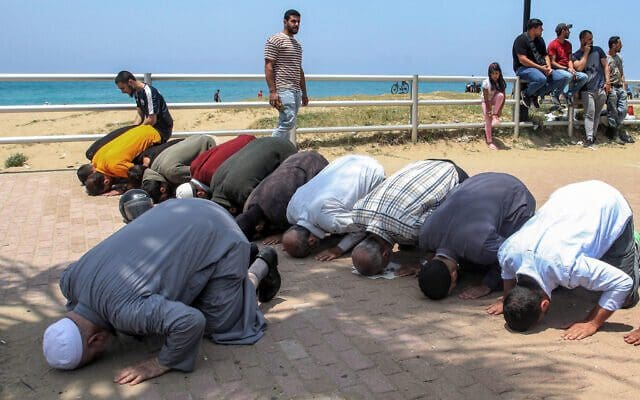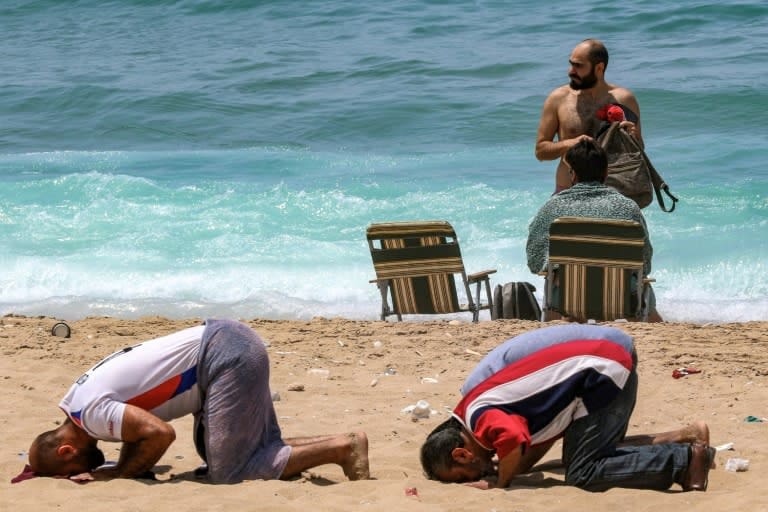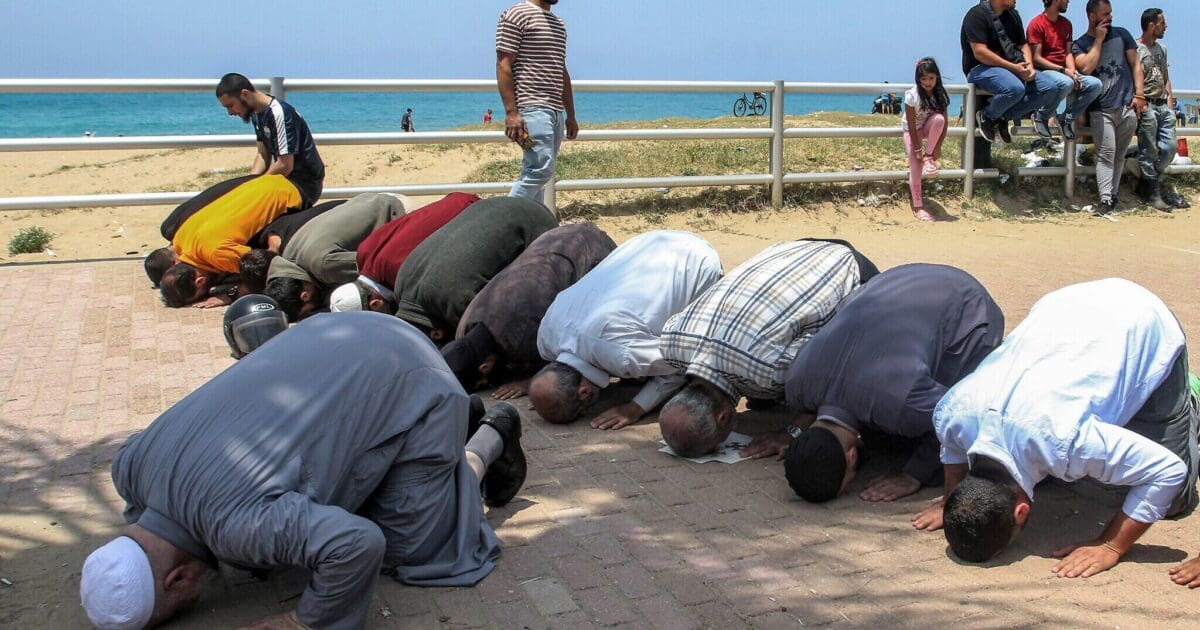A recent incident at a public beach in Saïda, a city in southern Lebanon, has sparked a national debate and led to protests regarding women’s rights and Islamic norms. The incident involved two religious Muslim dignitaries from a Sunni sect who, accompanied by their supporters, confronted couples and demanded they leave the beach due to perceived indecent attire worn by women. The subsequent events, including a complaint of physical attack by a couple and demonstrations by feminist activists and Muslims, have raised questions about personal freedoms, gender equality, and the influence of Islamic law on public spaces.
The Incident and its Aftermath
On May 14, two Muslim Sunni religious leaders and their followers visited a public beach in Saïda, Lebanon. They demanded that couples, particularly women, who were wearing attire they deemed indecent, leave the beach. The incident gained widespread attention after a couple refused to comply and reported being physically attacked.
National Response
In response to the incident, two demonstrations were organized on May 21 at the public beach of Saïda. The first was led by feminist activists advocating for women’s right to access the beach without clothing restrictions. The second demonstration consisted of a group of Muslims who opposed the presence of women in bathing suits. Local authorities prohibited both protests.
#LIBAN – Maillot de bain à la plage : Échauffourées entre manifestants à #Saïdahttps://t.co/Qwi7gvSnRQ pic.twitter.com/ToxG4SHGay
— Ici Beyrouth (@Icibeyrouthnews) May 21, 2023
Clashes occurred during opposing demonstrations that took place at Sidon beach, between supporters of modest clothing and bikinis.
— Lebanese News and Updates (@LebUpdates00) May 21, 2023
At least 3 were arrested over civil disobedience. pic.twitter.com/Uf3shIFpQ2

The event immediately prompted the mobilization of agents of the Internal Security Forces (ISF), soldiers and municipal police.
According to on-site reporter, Mountasser Abdallah, clashes and “provocations” between the two groups resulted in injuries to at least one civil society activist and two other demonstrators from the opposing camp. Additionally, one individual has been arrested, although their identity remains unclear at this time.
The Municipality’s Decision
The local authorities in Saïda, faced with the competing demonstrations, decided to take action and enforce Islamic law (Sharia). The municipality banned alcoholic beverages at the public beach and called on swimmers to adhere to what they deemed “decent dress.” Signs conveying these instructions were placed at the entrance to the beach.

Protests
Despite the ban on demonstrations, activists gathered at the beach to protest against the modesty norms and in support of women’s rights. Demonstrators, predominantly women, expressed solidarity and asserted that public spaces belong to everyone, regardless of personal beliefs or attire. The presence of Muslims seeking to disperse the protesters and their subsequent prayer service at the beach added further tension to the situation.
Social Media Outpouring:
The incident and subsequent protests gained attention on social media platforms, with many individuals expressing solidarity with the woman harassed on the beach. The hashtag #Sidon emerged, accompanied by photos of women in bathing suits, as a symbol of support and defiance against the Islamic law imposed by Muslims.
Legal Context in Lebanon
While Lebanese law does not explicitly ban bathing suits in public spaces, cultural and religious norms can influence individuals’ choices regarding their attire. In strict Islamic coastal cities like Saïda, women often attend private beaches where they feel more comfortable wearing bathing suits.
Broader Implications
This incident has ignited a more extensive discussion about the clash between personal freedoms, gender equality, Islamic norms, and migration. The presence of Muslims seeking to enforce strict dress codes and standards in Western nations has been an issue in many European countries.
In many Islamic communities in Europe, structures are in place to enforce Sharia norms for women. Since women are deemed inferior, they are afforded no choice but to cover themselves.
The Quran itself commands women to cover themselves to the extent that they are no longer capable of provoking temptation, and if they do not, they are considered fair game to be “abused.” As Robert Spencer explains, “It is not a cultural custom as some purport; it’s a religious edict.”
(Quran 24:31) And tell the believing women to lower their gaze and be modest, and to display of their adornment only what is apparent, and to draw their veils over their bosoms, and not to reveal their adornment except to their own husbands or fathers or husbands’ fathers, or their sons or their husbands’ sons, or their brothers or their brothers’ sons or sisters’ sons, or their women, or their slaves, or male attendants who lack desire, or children who know nothing of women’s nakedness. And do not let them stamp their feet so as to reveal what they hide of their adornment. And turn to Allah together, O believers, so that you may succeed.
(Quran 33:59) O prophet, tell your wives and your daughters and the women of the believers to draw their veils close around them. That will be better, so that they may be recognized and not molested.
Westerners’ acceptance of Islamic norms only empowers those within Islamic societies who seek to undermine and cancel Western laws and liberties. Across Europe, Islamic patrols exist in areas with large Muslim populations to harass people who participate in activities and dress that are “non-Islamic.” There are also countless instances (See here and here) of Islamic girls being murdered by their families or husbands for refusing to wear the hijab or becoming too “Westernized.”
Why would Western countries welcome Islamic migrants who hold beliefs that view women as being worth less than men and consider Islamic coverings as a means to control men’s sexual desires? This belief is advanced as a potential means of protecting women’s lives, as they are often unfairly held accountable for unlawful sexual encounters, leading to severe and even fatal punishments to the women for the actions of the men they have ’tempted’. Moreover, stonings, honor killings, floggings, and the mutilation of female genitalia are sporadically practiced in the Muslim world to exert control over and subjugate women. Regrettably, there is not a single Islamic country that can be considered democratic and upholds human rights, with a similar lack of gender equality. Why should Western nations expect migrants from Islamic nations to deviate from these established patterns and beliefs?














see
Definitely a clash of civilizations. Probably should have a Burkhini beach and a Bikini beach, with a 20′ wall separating the two. The more extreme hard liners you have to watch out for though. They are easy to spot. Usually the hard liners have a praying callous on their foreheads. Avoid those ones, and whatever you do, don’t smell their beard.
Very simple. The women should get to Israel, convert to Judaism and then they can wear bikinis at the beach.
RAIR DID CENSOR COMMENTS AGAIN!
“North Face chain angers consumers with drag queen ad inviting customers to ‘come out’ for ‘Summer of Pride’ ”
AND BOYCOTT ALSO North Face! NORTH FACE MUST GO BANKRUPT NOW!